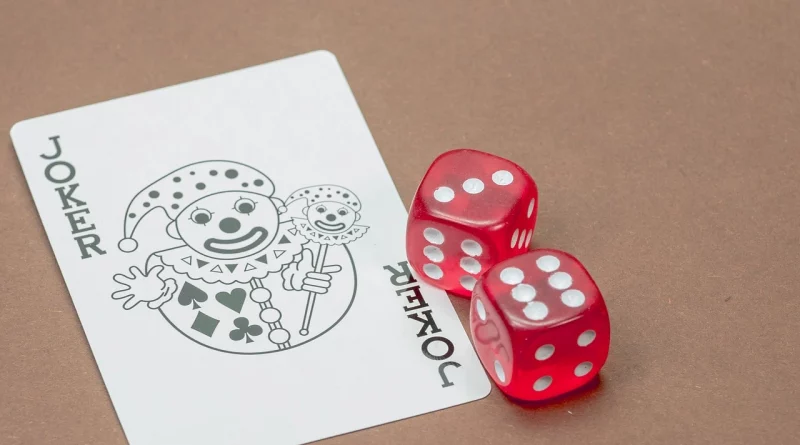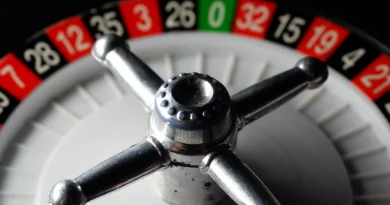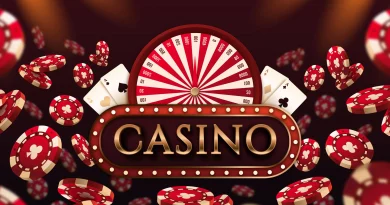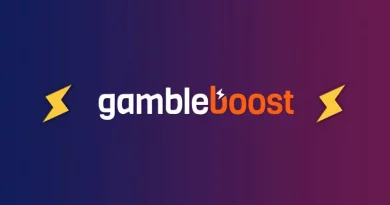Gambling addiction – understanding, help and recovery
Gambling addiction arises when a person cannot control their desire to gamble. It will lead to dire consequences that will primarily affect private life. A shortage of finances will hit the family of the person who is addicted and the children will be the main victims of this tragedy. This is why it is so important to inform the authorities that can help to stop this spiral of misery even at an early stage. In this article, we will discuss the definition of gambling addiction, its symptoms, causes, and treatments, as well as ways to help yourself or someone you know overcome this addiction.
What is Gambling Addiction?
Gambling addiction differs from casual gambling due to its compulsive nature. Individuals can’t stop, despite the desire to quit. They often harbor a strong urge to gamble and fantasize about big wins. Life stressors like divorce, losing a loved one, or job loss may trigger this disorder. People may resort to betting as an emotional escape. Even successful gamblers aren’t immune to addiction. Seeing gambling as an easy cash source, they can get trapped in a vicious addiction cycle.
It is important to note that gambling addiction is not limited to traditional forms of gambling, such as visiting casinos or playing the lottery. The rise of online gambling has made it easier for individuals to access and engage in gambling, increasing the risk of addiction.
There are 4 phases of gambling:
- victory phase – during this phase, the player gambles occasionally, and dreams of winning big, over time he/she starts to feel highly stimulated, spends more and more time gambling, and raises the stakes, a small win makes him/her euphoric. This is a situation that rogue casinos often take advantage of, as they see a new player and initially let him win.
- loss phase – the gambler bets with increasingly high stakes, which results in large losses, concentrates on gaining money for the game, neglects loved ones and professional duties, hoping for huge winnings
- desperation phase – the gambler gets into financial difficulties (he may lose his job, stop paying his creditors, separate from his family), mental exhaustion appears, feeling of guilt due to huge debts, but he is not able to stop playing,
- loss of hope phase – the gambler may lose his family (get divorced, break off contact with his adult children), fall into a debt spiral with no way out, fall into suicidal thoughts.
Gambling Addiction Symptoms
The following are some common signs and symptoms of gambling addiction:
- Preoccupation with gambling and constantly thinking about gambling activities.
- A need to gamble with increasing amounts of money to get the same level of excitement.
- Lying to family, friends, or employers about the extent of gambling activities.
- Feeling irritable, restless, or depressed when not gambling.
- Taking risks in other areas of life, such as at work or in relationships.
- Chasing losses means continuing to gamble to try to recover money lost in previous gambling sessions.
Causes of Gambling Addiction
The exact cause of gambling addiction is not known. However, several factors may contribute to the development of this condition, including:
- Genetics: Gambling addiction may be more common in people who have a family history of this condition.
- Brain chemistry: Some studies suggest that people with a gambling addiction may have imbalances in certain brain chemicals that affect mood and impulse control.
- Personality: People who are impulsive, easily bored, or have low self-esteem may be more likely to develop a gambling addiction.
- Environmental factors: Exposure to gambling, such as through advertising, may increase the risk of developing this addiction.
Treatment for Gambling Addiction
Treating gambling addiction is complex and often involves a combination of therapies and support. Some common treatments for gambling addiction include:
- Cognitive-behavioral therapy (CBT): This therapy helps individuals change their thoughts and behaviors related to gambling.
- Medications: Certain medications, such as antidepressants, may be prescribed to help control compulsive urges to gamble.
- Support groups: Support groups, such as Gamblers Anonymous, can provide a supportive environment for individuals struggling with such problems in their lives.
- Rehabilitation: Inpatient or outpatient rehabilitation programs can provide a structured environment for individuals to overcome their addiction.
How to Help Someone with Gambling Addiction
If you suspect that someone you know has a gambling problem, there are ways to help them. Below are some steps you can take:
- Talk to them: Have an honest and non-judgmental conversation with the person about your concerns.
- Offer support: Let the person know that you are there to help and support them through their recovery.
- Encourage them to seek help: Encourage the person to seek professional help from a therapist or support group.
- Help them avoid triggers: Help the person avoid situations or places that may trigger their urge to gamble.
How to Stop Gambling Addiction
Overcoming gambling addiction is a long-term process and it requires commitment and hard work. However, there are steps you can take to help yourself overcome this addiction:
- Admit you have a problem: Acknowledge that you have a problem with gambling and that it is affecting your life.
- Avoid temptation: Avoid places or situations that trigger your urge to gamble, such as casinos or online gambling sites.
- Find alternative activities: Find new, healthier ways to fill your time and provide you with a sense of excitement, such as exercise or creative pursuits.
- Seek support: Reach out to friends and family for support, or consider joining a support group, such as Gamblers Anonymous.
- Seek professional help: Consider seeing a therapist who specializes in gambling-related topics. A therapist can help you develop coping skills, identify triggers, and work through underlying emotional or psychological issues.
- Medications: If prescribed by a doctor, consider taking medication to help control compulsive urges to gamble.
- Stay accountable: Keep track of your progress and be accountable to someone, such as a friend or therapist, to help keep you on track.
Quotes from famous gamblers
Here are some quotes from famous gamblers that offer insight into the world of gambling and our related topic:
- “The only way to break a losing streak is to stop playing.” – Archie Karas, high-stakes gambler.
- “In gambling, the many must lose for the few to win.” – George Bernard Shaw, playwright and critic.
- “I’ve learned that anything that’s fun can be dangerous if you get carried away with it.” – Nick the Greek, professional gambler.
- “Gambling with cards or dice is not a sin, but trusting one’s luck too much is.” – Saint Thomas Aquinas, philosopher, and theologian.
- “The problem with gambling is that it attracts all the wrong people.” – George F. Walker, playwright.
- “Gambling is not a vice, it is an expression of our human intellect.” – Blaise Pascal, mathematician, and philosopher.
- “Gambling is the child of avarice, the brother of iniquity, and the father of mischief.” – Thomas Peckett Prest, novelist, and journalist.
These quotes highlight the dangers of gambling addiction, while also recognizing the allure and thrill that comes with the activity. It is important to remember to always gamble responsibly and seek help if necessary.
Conclusion
We should not be indifferent to gambling addiction, as it undeniably leads to significant consequences not only in the person’s life but also in the lives of their loved ones. If you or someone you know is struggling with this problem, it is important to seek help. There are many resources available, from support groups to professional treatment, that can help individuals overcome this addiction and find a path to recovery. Remember, taking the first step toward recovery is the most important thing and it takes courage and determination not to stop treatment halfway.
FAQ responsible gambling
Recognizing a gambling addiction can be challenging as each person’s situation varies. However, some common indicators may suggest a problem. These include frequent money troubles despite having a steady income, neglecting financial responsibilities, unaccounted leaves from work, unusual secretiveness, social withdrawal, and sudden mood swings. The disappearance of expensive items could also indicate that someone is dealing with a gambling issue. Again, these signs can be bolder in some cases than others.
Various organizations provide no-cost, private support and advice for those diagnosed with unhealthy gambling habits.
In the UK, several bodies offer practical guidance on how to focus on responsible gambling and handle problematic gambling tendencies. These include BeGambleAware, GamCare, Gambling Therapy, Gamblers Anonymous, Gordon Moody, National Debtline, and the National Problem Gambling Clinic.
For those in the USA, groups like the National Council on Problem Gambling, American Addiction Centers, and the Substance Abuse and Mental Health Services Administration offer alike support.
Remember, if you or anyone else is grappling with gambling issues, these organizations are equipped with the resources to provide immediate help.
Keeping track of your spending, particularly when it involves betting, usually involves carefully monitoring your account details on each betting platform you use. This data can give insights into your expenditures, including wins and losses.
If you are subscribed to multiple betting websites, maintain a personal ledger or diary, where you systematically document your earnings and losses across all these sites.
To effectively manage your budget, consider using a budget calculator. This financial tool will assist in determining the amount you can afford to risk without hurting your financial health. It’s critically important to adhere to this budget to avoid potential financial distress.
Opting for self-exclusion gives you the ability to restrict your access to specific websites, betting shops, and casinos that you frequently visit. Once you implement this, these operators have to suspend all marketing communications directed at you and make a reasonable effort to prevent you from bypassing this self-imposed exclusion.
A lot of these businesses participate in collective self-exclusion programs such as GAMSTOP in the UK. Such schemes enable you to exclude yourself for significant periods such as six months, one year, or even five years. It’s a valuable tool if you decide that you need to take a break from gambling activities.




